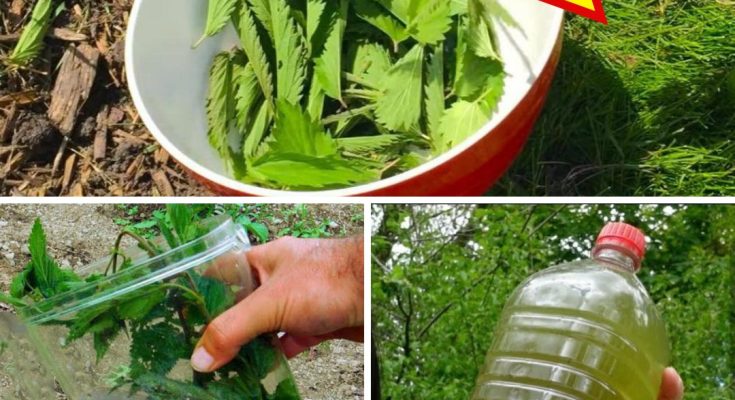Nettle fertilizer and nettle insecticide emerge as indispensable assets in the realm of organic gardening, offering ease of production, environmental friendliness, and manifold advantages for your garden’s well-being. In this guide, we delve into the significance of these nettle-based remedies, providing insights into their creation and optimal utilization.

The Importance of Nettle Fertilizer
Nettle fertilizer, synonymous with nettle tea or liquid fertilizer, stands as a nutrient-rich elixir, fostering the vitality and yield of your garden. Here’s why it holds significance:
- Nutrient Abundance: Nettles boast a wealth of essential nutrients like nitrogen, potassium, phosphorus, and trace minerals, pivotal for robust plant growth.
- Soil Enhancement: Nettle fertilizer enriches the soil with organic matter, enhancing its structure, moisture retention, and nutrient accessibility.
- Natural Pest Repellent: The potent aroma of nettle fertilizer serves as a deterrent to certain garden pests, minimizing reliance on chemical insecticides.
- Cost Efficiency: Crafting your nettle fertilizer proves economical and diminishes dependence on commercial alternatives.
How to Make Nettle Fertilizer
Creating nettle fertilizer entails a simple process. Follow these steps for optimal results:
- Gather Ingredients: Procure fresh nettle leaves (donning gloves for protection) and a large container or bucket.
- Prepare the Mixture: Fill the container with water, incorporating approximately 1 part nettle leaves to 10 parts water.
- Steep the Leaves: Immerse the nettle leaves in the water and allow them to steep for 2-3 weeks, intermittently stirring the blend.
- Strain and Dilute: Upon steeping, strain the liquid into another container. The resulting solution serves as nettle fertilizer, which can be further diluted (typically 1 part fertilizer to 10 parts water) before application.
The Importance of Nettle Insecticide
Nettle insecticide, also dubbed as nettle-based pest spray, emerges as a sustainable, eco-friendly remedy for pest management. Here’s why it’s pivotal:
- Environmental Harmony: Nettle insecticide offers a natural, chemical-free alternative to synthetic counterparts, minimizing harm to beneficial insects and ecosystems.
- Economical Solution: Crafting your nettle insecticide proves cost-effective and sustainable, reducing reliance on pricey commercial products.
- Effective Pest Control: Nettle insecticide exhibits efficacy against various garden pests, encompassing aphids, caterpillars, and mites.
How to Make Nettle Insecticide
Producing nettle insecticide involves a straightforward procedure. Follow these steps to concoct your solution:
- Gather Ingredients: Procure fresh nettle leaves (wearing gloves) and water, alongside organic, non-toxic soap.
- Steep the Leaves: Submerge nettle leaves in water (using approximately 1 part leaves to 5 parts water) and let them soak for 24 hours.
- Strain and Mix: Strain the liquid into a spray bottle and add a few drops of organic soap to aid adherence.
- Application: Directly apply the nettle insecticide to affected plants, targeting pests on both leaf surfaces. Repeat every 7-10 days as necessary.
Nettle fertilizer and nettle insecticide epitomize essential assets for gardeners championing organic and sustainable practices. These homemade solutions not only enrich soil and spur plant growth but also offer effective pest management strategies. By mastering the art of creating and deploying nettle-based products, you embark on a journey towards a flourishing, eco-conscious garden, reducing reliance on chemical fertilizers and insecticides.



